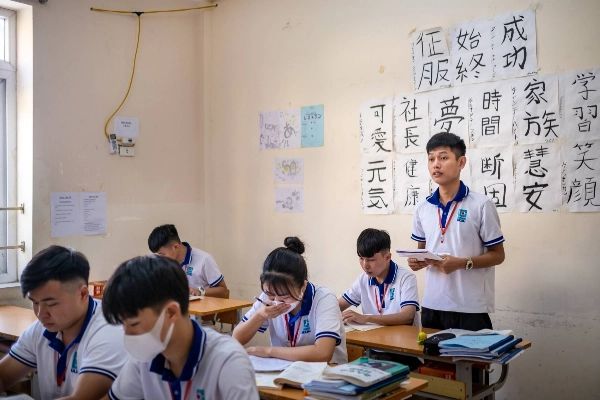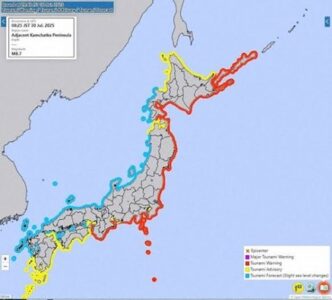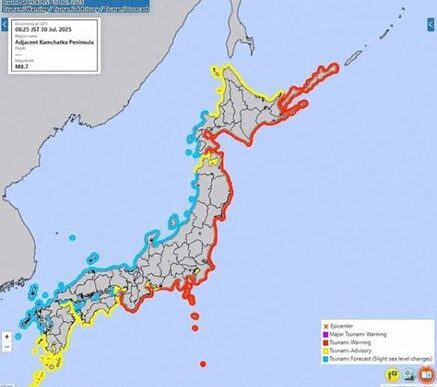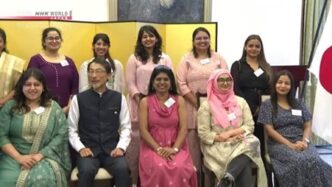Technical Intern Program 2027: In a landmark move to strengthen its workforce amid intensifying global competition for talent, the Japanese government has adopted a basic policy to launch a new residency qualification system starting April 2027. This sweeping reform will abolish the longstanding Technical Intern Training Program and replace it with a more structured and skill-focused initiative called the “Employment for Skill Development” system.
A Shift Toward Long-Term Integration
The new framework is aimed at attracting and developing competent foreign workers while ensuring their long-term retention in Japanese industries. By aligning the new system with the existing Specified Skilled Worker (SSW) program introduced in 2019, Japan hopes to create a unified and progressive path for foreign nationals, from entry-level to skilled employment.
Under the new system, foreign nationals will be accepted as unskilled laborers and trained over a three-year period to achieve the standards of the Specified Skill Type 1 residency status. This status allows holders to stay and work in Japan for up to five years. The structured training program is designed to build skills, foster workplace integration, and enhance workers’ overall experience in Japan.
Ending the Technical Intern Program

Established in 1993, the Technical Intern Training Program was initially promoted as a way for Japan to contribute to developing countries by sharing technical knowledge. However, it has faced severe criticism over the years, including allegations of human rights violations, unpaid wages, and harsh working conditions. Moreover, the inability of interns to change employers under the current system has led to cases of worker exploitation and even disappearances.
By contrast, the new system will allow job transfers within the same industry sector under specific conditions, such as passing skill and language proficiency tests. This is expected to provide greater freedom and protection for foreign workers while addressing industry demands.
Balancing Rural and Urban Workforce Distribution
Recognizing acute labor shortages in rural areas, the government has included provisions that allow select rural companies to accept up to three times more foreign trainees than typically permitted, based on the number of their full-time employees. At the same time, restrictions will be placed on job transfers to urban areas, which generally offer higher wages and attract more workers.
To prevent an excessive concentration of foreign workers in metropolitan regions, host companies will face limitations on the number of transferred trainees they can accept. In rural areas, these transfers cannot exceed one-third of all foreign trainees, while in urban areas, the cap is even stricter at one-sixth.
Safeguards and Oversight
The new system emphasizes quality over quantity. Only “blue-chip” companies that meet strict regulatory and ethical standards will be allowed to accept foreign trainees. This is intended to prevent labor exploitation and ensure a safe, fair working environment.
Additionally, an industry-specific non-transfer period of one to two years will be enforced to discourage poaching of talent and prevent excessive competition among employers.
What’s Next?
With the basic policy approved, the Japanese government is now working on detailed operational rules for each sector that plans to host foreign trainees. A ministerial ordinance is expected by the end of summer 2025, while a comprehensive policy package will be finalized after further discussions with an expert panel, likely before the end of the year.
Why It Matters
Japan’s move to overhaul its foreign labor policy comes at a time when the country’s economic appeal to international talent is weakening. In 2022, South Korea overtook Japan in nominal per capita GDP, and countries like Taiwan and South Korea have been expanding their foreign workforce programs. If Japan hopes to remain competitive and address its aging, shrinking population, a more attractive and ethical labor framework is essential.
This reform signals a major step toward inclusivity, fairness, and long-term workforce planning, potentially positioning Japan as a more desirable destination for global talent in the years to come.
Source:https://www.japantimes.co.jp/news/2025/07/28/japan/foreign-workers-new-residency-system/













